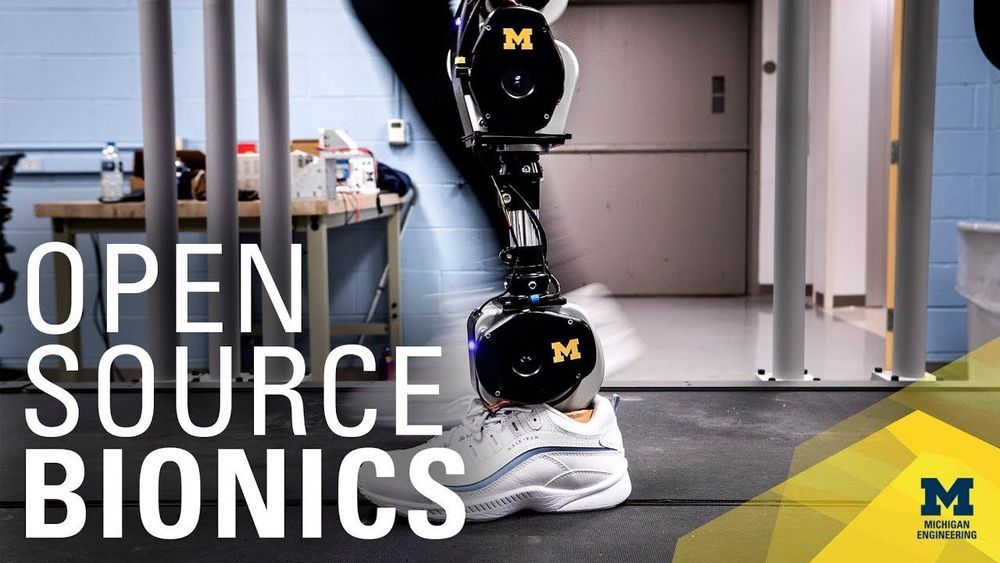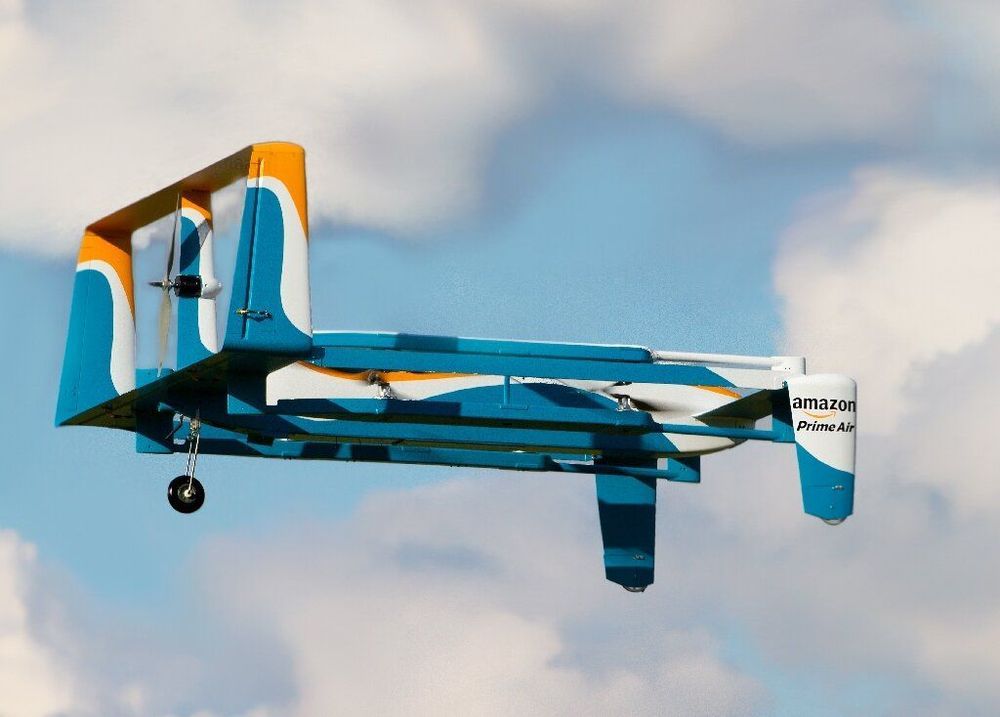Archive for the ‘robotics/AI’ category: Page 1821
Jun 7, 2019
The age of Machine Intelligence is here: Are you ready?
Posted by Quinn Sena in categories: business, education, robotics/AI
Are you prepared for the Age of Machine Intelligence? That’s a time when machines anticipate consumers’ choices before they are made. That age is nearer than many people realize, according to author/futurist Mike Walsh, who said business leaders need to understand how the new reality impacts the decisions they make.
The National Automatic Merchandising Association show, held last week in Las Vegas, made an appropriate setting for Walsh’s message, given the number of exhibits and education sessions featuring artificial intelligence. While these new technologies impact many industries, the convenience services industry has experienced a significant boost in recent years thanks to AI, micro markets, cashless readers, digital signage, telemetry-based remote machine monitoring, smart sensor shelving, facial detection and voice technology.
Walsh, author of “The Dictionary of Dangerous Ideas” and CEO of Tomorrow, a consumer innovation research lab, challenged his listeners during his keynote presentation to think more creatively.
Continue reading “The age of Machine Intelligence is here: Are you ready?” »
Jun 7, 2019
AI Course with Sebastian Thrun and Peter Norvig: Udacity Course
Posted by Müslüm Yildiz in categories: biotech/medical, education, finance, quantum physics, robotics/AI

Artificial Intelligence (AI) is a field that has a long history but is still constantly and actively growing and changing. Artificial Intelligence (AI) technology is increasingly prevalent in our everyday lives. It has uses in a variety of industries from gaming, journalism/media, to finance, as well as in the state-of-the-art research fields from robotics, medical diagnosis, and quantum science.

Udacity was born out of a Stanford University experiment in which Sebastian Thrun and Peter Norvig offered their “Introduction to Artificial Intelligence” course online to anyone, for free. Over 160,000 students in more than 190 countries enrolled and not much later, Udacity was born.
Continue reading “AI Course with Sebastian Thrun and Peter Norvig: Udacity Course” »
Jun 6, 2019
How Two Paralyzed Patients Walked Again Without Surgery
Posted by Quinn Sena in categories: biotech/medical, cyborgs, robotics/AI, space
The protocol, dubbed Walk Again Neuro-Rehabilitation (WA-NR), first uses EEG to record and control virtual avatars and robotic exoskeleton walkers while the patient wears a “tactile shirt” that offers them sensory feedback. This stimulation theoretically teaches damaged nerves to reroute their motor functions to healthy ones. Following the program for just three years, the patients—some paralyzed for decades—dramatically regained sensation in their lower limbs. They could feel where their legs were in space and better control their lower limbs. Some even reported feelings of normal, welcomed pain after a sharp jab.
The current study, published in Scientific Reports, takes neurorehab a step further. In two patients from the original cohort, the team further trained and examined their neuro-recovery in detail. Patient P1 was a middle-aged man paralyzed for 4.5 years at the onset of the study; P2, a 32-year-old, had been paralyzed for a decade. Although trained with WA-NR, both patients scored on the low end of overall movement, with the ability to extend their knees at most.
For each training session, the patients wore an EEG cap to measure movement intent and had eight electrodes placed on the skin of each leg to stimulate muscles. Simultaneously they wore a haptic shirt, which gave them a sense of their body in space by stimulating their forearms.
Continue reading “How Two Paralyzed Patients Walked Again Without Surgery” »
Jun 6, 2019
First-of-its-kind platform aims to rapidly advance prosthetics
Posted by Quinn Sena in categories: bioengineering, biotech/medical, cyborgs, robotics/AI, transhumanism

A new open-source, artificially intelligent prosthetic leg designed by researchers at the University of Michigan and Shirley Ryan AbilityLab is now available to the scientific community.
The leg’s free-to-copy design and programming are intended to improve the quality of life of patients and accelerate scientific advances by offering a unified platform to fragmented research efforts across the field of bionics.
Continue reading “First-of-its-kind platform aims to rapidly advance prosthetics” »
Jun 6, 2019
Microsoft Advances Historical UN AI For Good Global Summit
Posted by Quinn Sena in category: robotics/AI
Jean-Philippe Courtois, EVP and President, Microsoft Global Sales, Marketing & Operations, provided a compelling vision with his opening keynote at the historical UN ITU AI for Good Global Summit (AI4G), hosted May 28–31, 2019 at UN ITU HQ, Geneva.
Key themes in Jean-Philippe’s speech included these areas:
Jun 6, 2019
Jeff Bezos wants to build the infrastructure for space startups
Posted by Klaus Baldauf in categories: business, robotics/AI, space travel
At its re: Mars conference, Amazon’s CEO Jeff Bezos took the stage today to be “interviewed” by Jenny Freshwater, Amazon’s director of forecasting. As any AWS machine learning tool could have forecasted, having an employee interview her boss didn’t lead to any challenging questions or especially illuminating answers, but Bezos did get a chance to talk about a variety of topics, ranging from business advice to his plans for Blue Origin.
We can safely ignore the business advice, given that Amazon’s principle of “disagree and commit” is about as well known as it could be, but his comments about Blue Origin, his plans for moon exploration and its relationship to startups were quite interesting.

He noted that we now know so much more about the moon than ever before, including that it does provide a number of resources that make it a good base for further space exploration. “The reason we need to go to space is to save the Earth,” he said. “We are going to grow this civilization — and I’m talking about something that our grandchildren will work on — and their grandchildren. This isn’t something that this generation is able to accomplish. But we need to move heavy industry off Earth.”
Continue reading “Jeff Bezos wants to build the infrastructure for space startups” »
Jun 6, 2019
Amazon says drone deliveries coming ‘within months’
Posted by Quinn Sena in categories: drones, robotics/AI, space
Amazon said Wednesday it expects to begin large-scale deliveries by drone in the coming months as it unveiled its newest design for its “Prime Air” fleet.
Jeff Wilke, head of Amazon’s consumer operations, told the company’s Machine Learning, Automation, Robotics and Space conference in Las Vegas that drones would play a role in ramping up efforts to shorten delivery times for many items to just one day for Amazon Prime members.
“We’ve been hard at work building fully electric drones that can fly up to 15 miles (25 kilometers) and deliver packages under five pounds (2.3 kilos) to customers in less than 30 minutes,” Wilke said in a blog post.
Continue reading “Amazon says drone deliveries coming ‘within months’” »
Jun 6, 2019
Driverless cars: once they’re on the road, human drivers should be banned
Posted by Quinn Sena in categories: media & arts, robotics/AI
Self-driving cars could revolutionise people’s lives. By the end of the next decade, or perhaps even sooner, they could radically transform public spaces and liberate us from the many problems of mass car ownership. They’ll also be much better behaved than human drivers.
Robot drivers won’t break the speed limit, jump the lights, or park where they shouldn’t. They won’t drive under the influence of drink or drugs. They’ll never get tired or behave aggressively. They won’t be distracted by changing the music or sending a text, and they’ll never be trying to impress their mates.
Driverless cars could also change the face of public spaces. Private cars are very expensive items that do absolutely nothing 95% of the time. They are economically viable only because paying a taxi driver for all your car journeys would be even more expensive. Once cars don’t need human drivers, this cost balance should tip the other way.
Continue reading “Driverless cars: once they’re on the road, human drivers should be banned” »
















